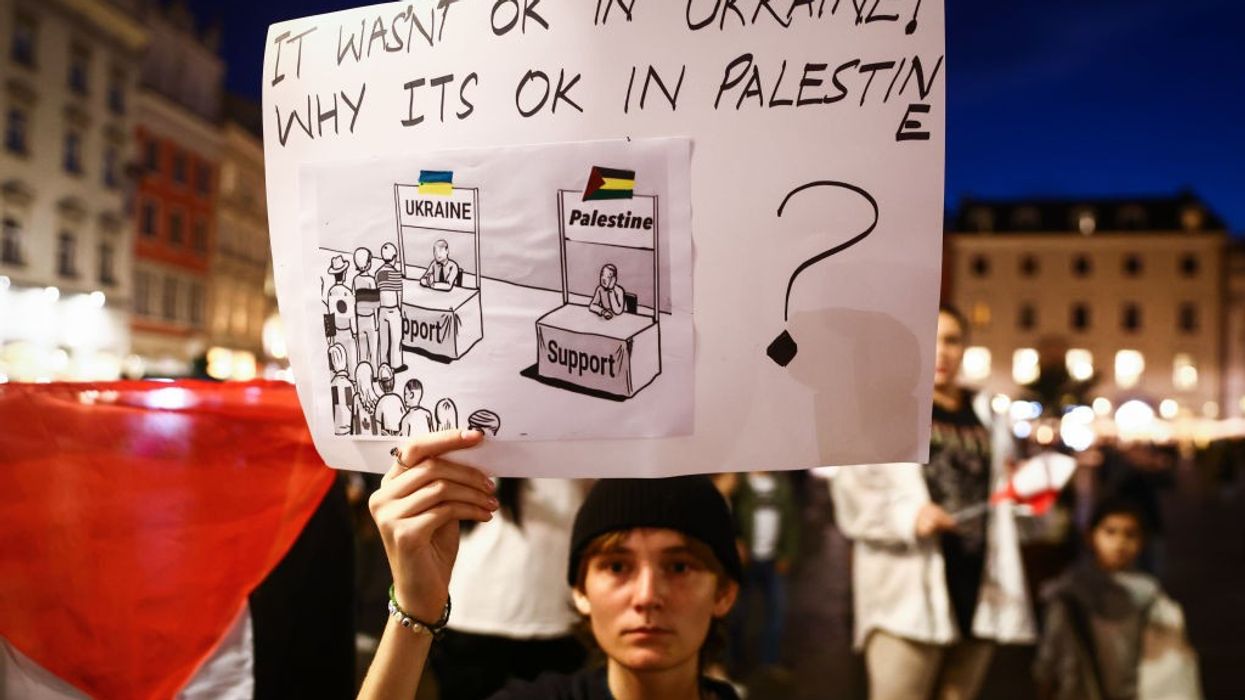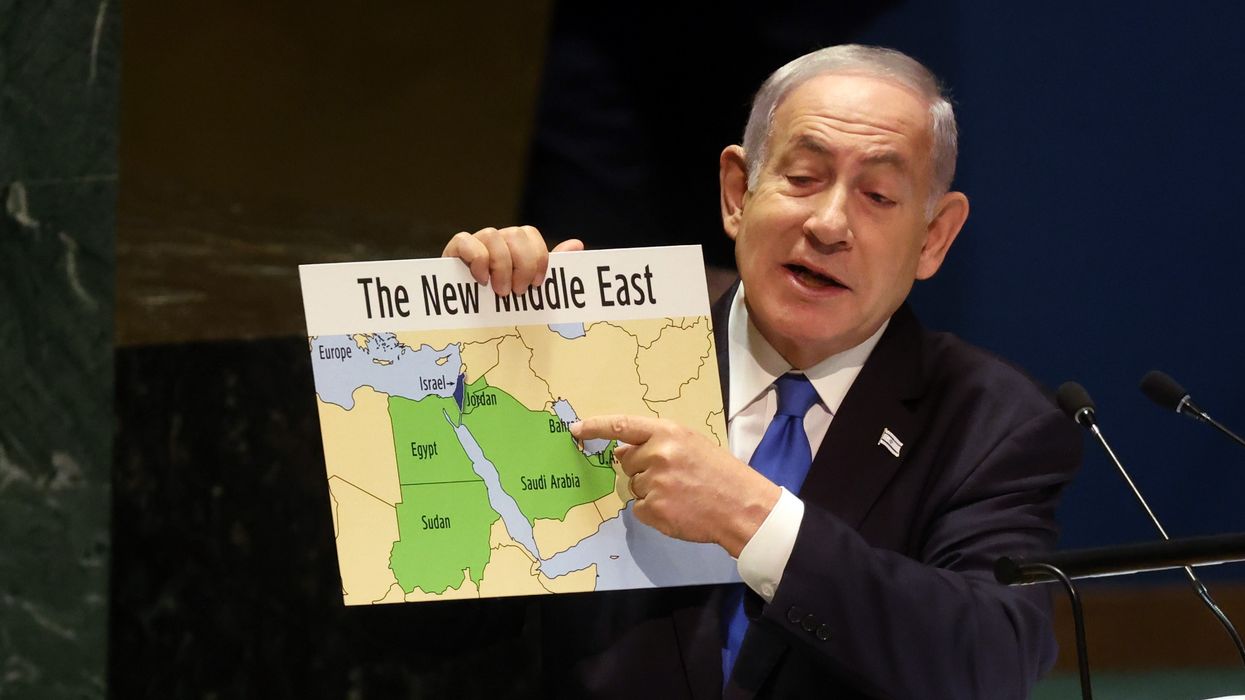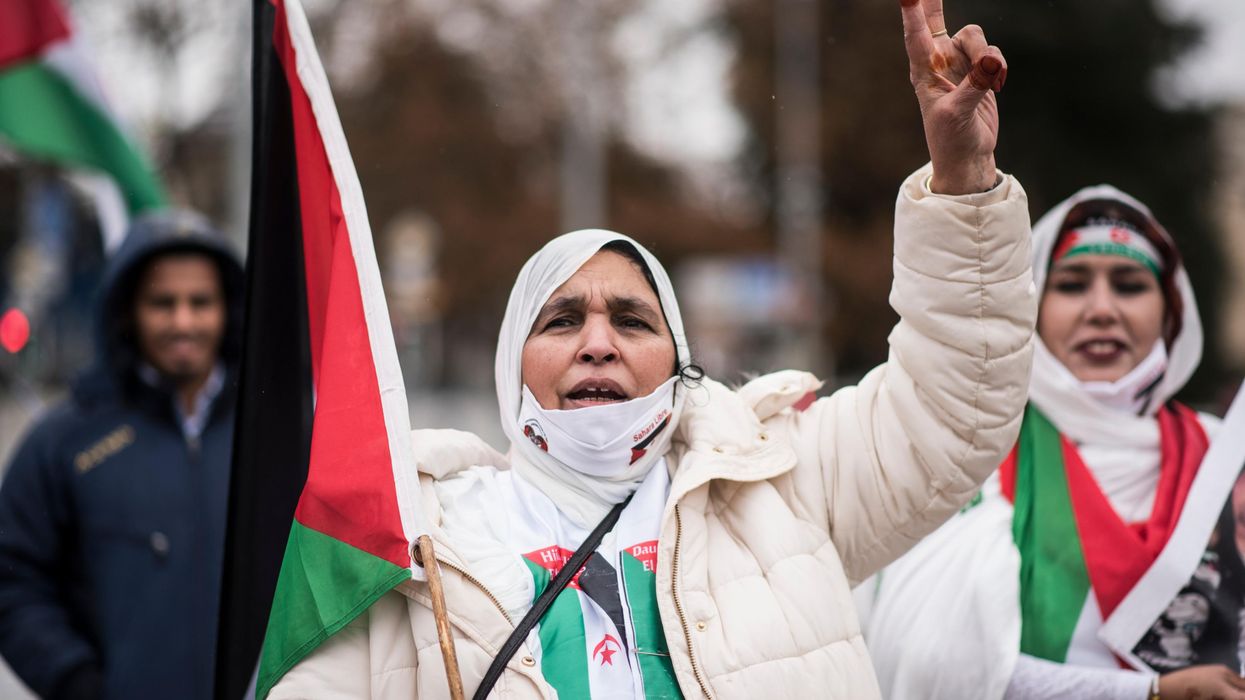Most observers believed that, as with some of Trump's other impetuous foreign policy decisions, President Joe Biden would reverse it soon after coming to office. However, much to the disappointment of bipartisan congressional leaders, career State Department officials, major U.S. allies, North Africa scholars, and the human rights community, he has refused to do so.
The Biden administration has not explicitly reconfirmed Trump's recognition, either. However, unlike maps from the United Nations, National Geographic, Rand McNally, Google, or pretty much anywhere else, official U.S. government maps under the Biden administration all show Western Sahara as part of Morocco with no delineation between the two. U.S. embassy officials travel to the occupied territory and treat it as part of the kingdom. State Department reports referencing the territory no longer list it as a separate entity.
Biden administration officials have repeatedly refused to answer press queries regarding the U.S. recognition. In response to direct questions from reporters, they pivot to vague statements in support of the "peace process." For example, Secretary of State Antony Blinken dodged a series of questions from a BBC reporter by saying that the United States is focused on supporting the efforts of United Nations envoy Staffan de Mistura to work with "all the parties involved... to find a durable and dignified solution" so that "process can move forward."
The problem is that the process has not actually been going forward.
For the Moroccans, the U.S. recognition has only solidified their insistence that self-determination is out of the question. If the world's number one superpower insists that Western Sahara is part of Morocco and blocks the United Nations from enforcing its resolutions, why should they even consider compromising? To the Moroccans, U.S. recognition means the issue has been resolved in their favor and they have no incentive to adhere to their international legal obligations.
As with Israel and Palestine, the United States insists that the two parties work it out between themselves even as the occupying power categorically rules out the option of a viable independent state. Furthermore, it ignores the great asymmetry in power between the occupier and those under occupation as well as the moral and legal responsibility of occupying powers to allow the people of the conquered lands the right of self-determination.
Tragic U.S. Hypocrisy
This contrasts with the U.S. reaction to the 1990 Iraqi invasion of Kuwait in which the Iraqis--like the Moroccans--put forward the dubious historical claim that their small southern neighbor was historically part of their country that had been severed by colonial machinations and that they were only correcting a historical injustice. The United States did not insist that the Kuwaitis engage in an endless "peace process" with the Iraqis, but insisted that Iraq end their occupation, even going to war less than six months later to reverse it.
The Biden administration, however, in refusing to rescind Trump's recognition, is taking the position that the expansion of territory by force--notwithstanding such prohibitions in the UN Charter--is not necessarily illegal after all and can be an acceptable form of statecraft.
As a result, the White House's opposition to Russia's illegal annexation of Crimea and more recent threats against Ukraine's territorial integrity is insincere. If the administration really believed that "any use of force to change borders is strictly prohibited under international law," it would have annulled Trump's recognition. Indeed, the Biden administration's hypocrisy only serves to strengthen Russia's authoritarian leader Vladimir Putin, who can correctly argue that U.S. opposition to his aggressive moves towards Ukraine is more political than principled.
On an even grander scale than the Israelis in their occupied territories, the Moroccans have been colonizing Western Sahara with many tens of thousands of settlers. As with their ally Israel, successive U.S. administrations have been facilitating the occupying power's creation of facts on the ground by dragging out the negotiation process indefinitely, thereby making a reversal of the occupation increasingly difficult.
Biden's support for the Moroccan occupation is even more controversial than his support for the Israeli occupation. In addition to the outspoken opposition by leading congressional liberals like Sen. Patrick Leahy (D-VT), Rep. Betty McCollum (D-MN), and others, U.S. recognition of the Moroccan conquest has upset some prominent conservatives, such as Sen. James Inhofe (R-OK) and former National Security Advisor John Bolton, as well as prominent State Department veterans.
On the one hand, Biden's opposition to long-standing international legal principles is not new. He was an outspoken supporter of the U.S. invasion of Iraq, he has defended successive right-wing Israeli governments when they have violated international law, and he has criticized the United Nations, the World Court, and other institutions when they've raised concerns about violations of international law by the United States and its allies.
At the same time, recognizing the takeover of one entire independent country by another is a virtually unprecedented action by a major power in modern times. Even the administrations of Ronald Reagan and George W. Bush, notorious for their violations of international legal norms, refused to go as far as Trump--and now Biden--when it came to the Moroccan occupation.
Out of Step With International Law
Western Sahara--formally known as the Sahrawi Arab Democratic Republic (SADR)--has at one time or another been recognized by 84 countries and is a full member state of the African Union. The Biden administration is effectively recognizing the invasion, occupation, and annexation of one recognized African state by another, thereby harming U.S. relations with much of the continent.
The AU has long held that colonial boundaries, as arbitrary as some of them may be, must not be altered unilaterally. The SADR currently governs roughly one-quarter of Western Saharan territory and about 40 percent of the population, mostly in Polisario-administered refugee camps in western Algeria.
Western Sahara is recognized by the United Nations, the World Court, the African Union, and a broad consensus of international legal scholars as a non-self-governing territory. As a case of incomplete decolonization, Western Sahara must therefore be allowed to engage in an act of genuine self-determination. That is why no major country had recognized Morocco's control over Western Sahara until Trump's announcement a little over a year ago.
There would be no problem if the Sahrawis chose incorporation into Morocco in an internationally supervised referendum. However, as a non-self-governing territory, they must also have the opportunity to choose independence, which Morocco has categorically ruled out. The United States is effectively agreeing with the Moroccan monarchy that the indigenous population of Western Sahara--known as Sahrawis, and who embrace a distinct history, dialect, and culture from their northern neighbor--should not even be given that chance.
Instead, the United States and France have endorsed a Moroccan "autonomy" plan for Western Sahara that is quite limited in scope and would fail to meet the international standard for autonomy. It does not allow the Sahrawis the option of independence--to which they are entitled as a U.N.-recognized non-self-governing territory according to international law, a series of U.N. resolutions, and a landmark World Court ruling.
A Human Rights Nightmare
Human Rights Watch, Amnesty International, and other reputable investigative groups have documented widespread arrests, the torture of dissidents, and violent suppression of peaceful protests by Moroccan authorities in Western Sahara.
Freedom House, in its survey of 210 countries, has ranked Moroccan-occupied Western Sahara as having the worst record on political rights in the world save for Syria. This raises serious questions regarding how much "autonomy" would mean in practice as well as whether the Biden administration's rhetoric in support of human rights and democracy is at all sincere.
Traditionally, Sahrawi women have had more rights than their Moroccan counterparts, having equal rights to inheritance and divorce, keeping their maiden names, and being trusted in positions of leadership. They are particularly visible in the leadership of the nonviolent resistance movement in the occupied territories and have been specifically targeted for sexual abuse by Moroccan occupation forces.
Indeed, the Biden administration's apparent belief that Western Sahara should be governed by a foreign, autocratic, right-wing monarchy instead of a relatively progressive and secular republic says a lot about its priorities.
The Polisario Front, the leading nationalist movement which initially emerged in the anti-colonial struggle against Spain, engaged in an armed struggle against Moroccan occupation forces until agreeing to a 1991 cease fire in return for a referendum on independence. Morocco never followed through, however. After 29 years of broken promises, continued occupation, and a series of Moroccan violations of the cease fire, the Polisario resumed the war in the fall of 2020.
Morocco's allies in Congress keep insisting without evidence that the Polisario has links to Hezbollah, Al-Qaeda, the Islamic State, and other terrorist groups even though the Polisario has never engaged in terrorism and is decidedly secular in orientation. Regardless, the Biden administration's failure to support the right of the people of Western Sahara to self-determination is contributing to the destabilization of the region.
Bigger Stakes for the 21st Century
The implications of the Biden administration's policies go well beyond the fate of the half million Sahrawis living in exile or under repressive military rule. Biden's failure to rescind Trump's recognition of the Moroccan conquest will not only prolong the bitter conflict in Western Sahara, but will also contribute to undermining the liberal international order in place since the end of World War II.
As a result, the stakes are not simply about the future of one small country, but the question as to which principle will prevail in the 21st century: the right of self-determination, or the right of conquest?
The answer could determine the fate not just of the Western Sahara, but that of the entire international legal order for many decades to come.




